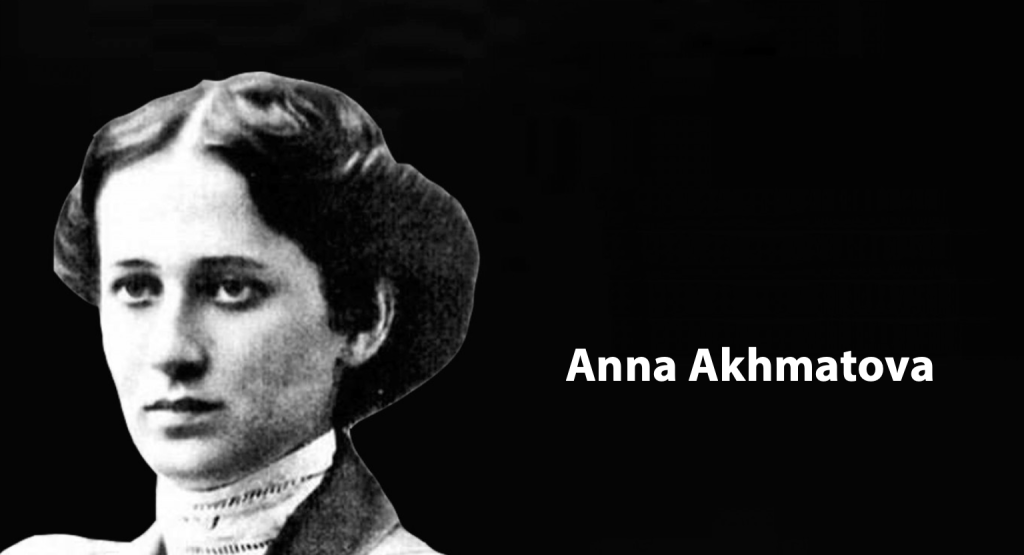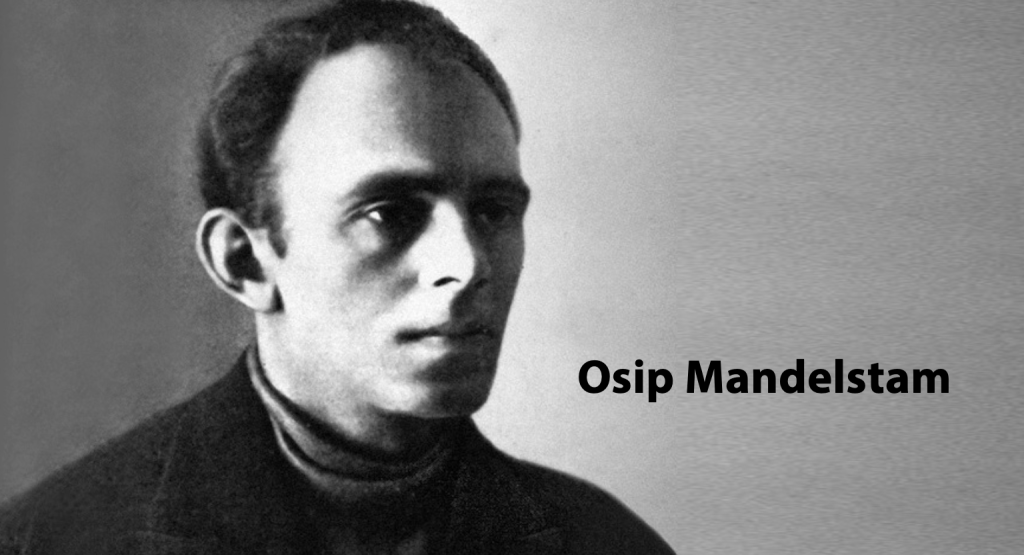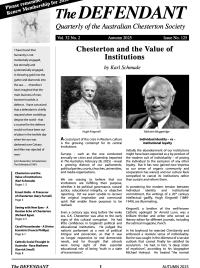Echoes of Chesterton can be found in unlikely places, such as among Russian writers and Soviet dissidents during the Stalinist era. Richard Egan has been reading these authors for over 40 years, and in this article highlights the insights of the poets, Anna Akhmatova (1889-1966) and Osip Mandelstam (1891-1938).
Richard has been a librarian as well as a researcher and speech writer for members of several State Parliaments in Australia. He has published two online books on euthanasia. He can provide on request an expanded and footnoted version of this Osip Mandelstam article.


In his essay, ‘The Riddle of the Ivy ‘ (Tremendous Trifles, 1909), Chesterton describes setting off from Battersea to find Battersea.
I am going to wander over the whole world until once more I find Battersea … I cannot see … any England … because a cloud of sleep and custom has come across my eyes.
He applies this to the plan of The Everlasting Man:
There are two ways of getting home; and one of them is to stay there. The other is to walk round the whole world till we come back to the same place.
Through an imaginative effort to see Christianity “from the outside”, we “find that it really looks like what is traditionally said about it inside”.
Russian poet Anna Akhmatova expresses the same idea:
Like someone who has left by the western gate
Of his native city and, having circled the earth,
Approaches the eastern gate confusedly
And wonders: “Where is the spirit guiding me so wisely” –
So I …
Akhmatova’s husband, Nikolay Gumilov, wrote from London on 21 June 1917:
I have also been promised a meeting with Chesterton, who, it turns out, is just over 40 but has written around 20 books. He is either greatly loved or utterly despised, but acknowledged by all.
In line to deliver a parcel to her imprisoned son, Akhmatova was recognised by “a woman with bluish lips … who woke up from the stupor to which everyone had succumbed and whispered … ‘Can you describe this?’ She answered: ’Yes I can’. Then something that looked like a smile passed over what had once been her face”.
Akhmatova’s Requiem includes these lines:
Mary Magdalene beat her breast and sobbed,
The beloved disciple turned to stone,
But where the silent Mother stood, there
No one glanced and no one would have dared.
Akhmatova continues to inspire. In 2017 when a bust of Stalin was unveiled in Moscow a lone woman protested, holding a placard with Akhmatova’s To the Defenders of Stalin:
There are those who shouted ‘Release
Barabbas for us on this feast,’
Those who ordered Socrates to drink poison
In the bare, narrow prison.
They are the ones who should pour this drink
Into their own innocently slandering mouths,
These sweet lovers of torture,
Experts in the manufacture of orphans.
Akhmatova expresses the belief that sustained her:
Gold rusts and steel decays,
Marble crumbles away. Everything is on the verge of death.
The most reliable thing on earth is sorrow,
And the most enduring — the almighty Word.
She sums up the murderous gangsters who had control of Russia:
They swore by the Hammer and Sickle
In the face of your agonizing death
‘We pay in gold for betrayal,
For songs we pay in lead.’
Stain – the Kremlin Mountaineer
Akhmatova’s friend, Osip Mandelstam, died in 1938 while being transported to Siberia. He was arrested in 1934 when an informant reported his epigram on Stalin:
Our lives no longer feel ground under them.
At ten paces you can’t hear our words.
But whenever there’s a snatch of talk
it turns to the Kremlin mountaineer,
the ten thick worms his fingers,
his words like measures of weight,
the huge laughing cockroaches on his top lip,
the glitter of his boot-rims.Ringed with a scum of chicken-necked bosses
he toys with the tributes of half-men.One whistles, another meows, a third snivels.
He pokes out his finger and he alone goes boom.He forges decrees in a line like horseshoes,
One for the groin, one the forehead, temple, eye.He rolls the executions on his tongue like berries.
He wishes he could hug them like big friends from home.
The “gold sun” of the Eucharist
Mandelstam described his poetics as a “homesickness for world culture”. His poem on the Eucharist is seen from the outside:
There: the Eucharist, a gold sun,
hung in the air — an instant of splendour.
Here nothing should be heard but the Greek syllables —
the whole world held in the hands like a plain apple.The solemn height of the holy office; the light
of July in the rotunda under the cupola;
so that we may sigh from full hearts, outside time,
for that little meadow where time does not flow.And the Eucharist spreads like an eternal noon;
all partake of it, everyone plays and sings,
and in each one’s eyes the sacred vessel
brims over with inexhaustible joy.
Conversations with Dante
Mandelstam’s widow, Nadezhda, recounts how while in exile he dictated his Conversations with Dante. Mandelstam reflects on how Dante takes his stand outside of time:
By connecting the incompatible, Dante changed the structure of time …he was forced to aim at a glossary of facts, a synchronism of events, names, and legends, separated by centuries, precisely because he heard the overtones of time.
So, imagine that the patriarch Abraham and King David, all Israel, with Isaac, Jacob and all their relations and Rachel, for whose sake Jacob suffered so much, have entered into a singing and sounding organ, as if into an open mansion, and concealed themselves within it. And that after this, the organ acquires the ability to move – all its pipes and stops brought to an extraordinary degree of agitation, ever more furiously, until its sound begins to die away.
If the halls of the Hermitage Museum suddenly filled with madness, if the paintings of all the schools and old masters suddenly fell from their hooks, invaded one another, mingled, and filled the rooms’ air with a futuristic roar and a violent colourful excitement, then something like Dante’s Commedia would have arrived.”
The Many-sided Mystery of Beauty
In his essay, “On Dante and Beatrice” (All Is Grist, 1932), Chesterton ponders a similar point – how Dante throws everything into the mix, even pagan myths, to bring out some aspect of the one central mystery:
Instead of saying that Beatrice looked beautiful, Dante says that he felt like Glaucus when he ate the grass that made him sea-fellow of the gods. This summoning of remote symbols, this calling of spirits from the vasty deep, like the sea-green Glaucus into the presence of Beatrice, does suggest … that all beautiful images are shadows of the one real beauty, and can be … interchanged for its service.
Beatrice is to be loved because she is beautiful; but she is beautiful because there is behind her a many-sided mystery of beauty, to be seen also in the grass and the sea, and even in the dead gods. There is a promise in and yet beyond all such pictures; and the poet can see grass or the great sea or the great ship going over it, hearing a sort of whisper: ‘Thine eyes shall see the King in his beauty.’
